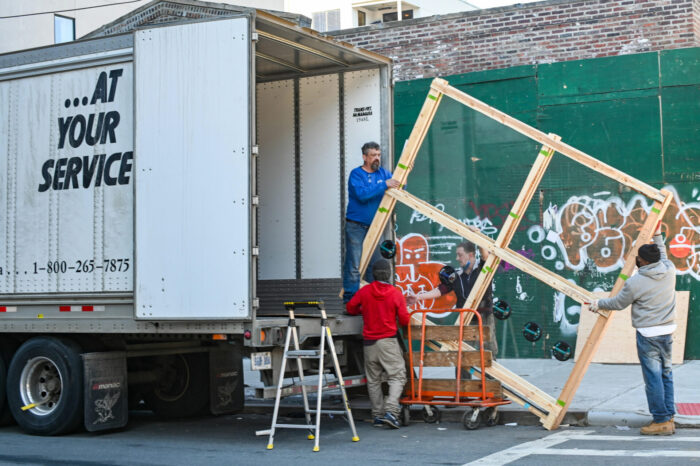
North Carolina continues to grow as one of the most attractive states for families, students, and professionals looking to relocate. With its diverse economy, scenic landscapes, and expanding educational opportunities, the Tar Heel State offers something for nearly everyone. Yet, while the idea of moving can be exciting, the logistics of relocation often bring challenges that require planning and support.
For new and longtime residents alike, knowing what to expect when moving within or to North Carolina can help ensure a smoother transition.
Why North Carolina is a Top Destination
According to the U.S. Census Bureau, North Carolina remains one of the fastest-growing states, gaining tens of thousands of new residents each year. This growth is fueled by its strong job market, affordable housing in many areas, and an appealing quality of life. Cities like Charlotte and Raleigh attract professionals in finance and technology, while the Research Triangle is a hub for education and innovation.
Universities such as Duke University and the University of North Carolina at Chapel Hill are not only academic powerhouses but also major employers and drivers of economic growth. For students, the opportunity to live in a thriving academic environment is a major draw, while families benefit from excellent schools and healthcare systems.
The Practical Side of Relocation
While the decision to relocate is often inspired by opportunity, the process itself can be stressful. Packing, transportation, and settling into a new community all require time and resources. This is why many residents turn to professional moving companies. Full service movers provide support for both local and long-distance moves, ensuring that belongings arrive safely and on schedule.
Professional movers offer more than trucks and labor — they bring expertise in logistics, packing, and even storage solutions. For newcomers to the state, having reliable help during the transition allows them to focus on starting work, enrolling children in school, or exploring their new neighborhoods.
Housing and Affordability
One of the state’s greatest strengths is its affordability. Compared to many regions in the United States, North Carolina offers relatively lower housing costs. The U.S. Department of Housing and Urban Development notes that affordability plays a key role in relocation decisions, and many families find that their budgets stretch further in areas like the Piedmont and coastal communities.
That said, demand in urban centers like Raleigh and Charlotte has pushed prices upward, making planning essential. Prospective residents should explore housing options early, especially in fast-growing areas where availability may be limited.
Transportation and Accessibility
Transportation in North Carolina varies depending on location. While major cities have some public transit infrastructure, most residents rely heavily on personal vehicles. The North Carolina Department of Transportation manages highways and roadways that connect urban centers with rural communities. For those moving into suburban or rural areas, owning a car is almost always necessary.
Students relocating to college towns may benefit from shuttle services and bike-friendly campuses, while families settling in metropolitan regions should plan for daily commutes. Understanding local transportation options in advance helps ensure smoother adjustment after a move.
Employment and Economic Opportunity
North Carolina’s economy is diverse and resilient. The U.S. Bureau of Labor Statistics highlights strong growth in healthcare, education, technology, and manufacturing sectors. Charlotte is considered the second-largest banking hub in the nation, while Raleigh and Durham are known for innovation and startups.
For families relocating to the state, these industries provide not only job opportunities but also long-term career potential. Students also benefit from internships and cooperative education programs offered by local universities, connecting academic learning to professional development.
Healthcare and Community Resources
Access to healthcare is a priority for anyone relocating, and North Carolina provides a mix of public and private healthcare facilities. The National Institutes of Health emphasizes the role of preventive care, which is widely available in the state’s major hospital systems.
Community resources also play an important role in integration. Families can access recreational programs, counseling services, and nonprofit organizations that support both physical and mental well-being. In Iredell County and beyond, strong local networks help newcomers build connections quickly.
Culture and Lifestyle
North Carolina offers a rich cultural landscape that appeals to diverse groups of residents. From the Blue Ridge Mountains to the Outer Banks, the state provides endless opportunities for outdoor activities such as hiking, fishing, and boating. Festivals, art exhibits, and live music venues further enhance community life.
Educational and cultural institutions like North Carolina State University also contribute to the state’s reputation as a place where innovation and tradition coexist. New residents will find that cultural experiences play an important role in making North Carolina feel like home.
Preparing for a Successful Move
Ultimately, relocating to North Carolina is about more than changing addresses. It is about preparing for a new chapter in life with the right support and resources. Whether moving for work, school, or lifestyle, planning ahead ensures the process is as stress-free as possible. By exploring housing, transportation, employment opportunities, and local resources, individuals and families can set themselves up for success in their new community.



